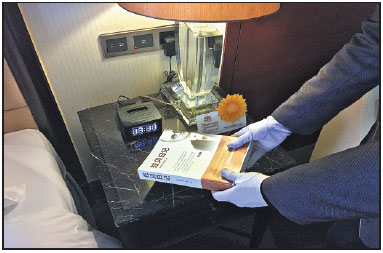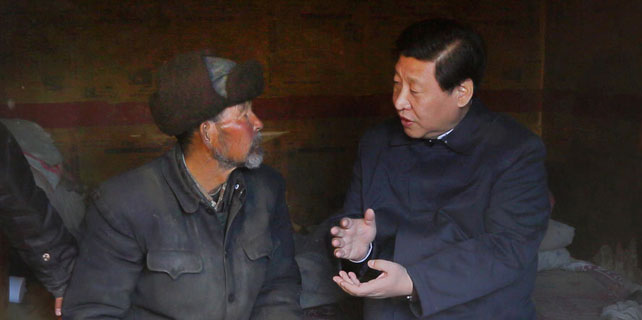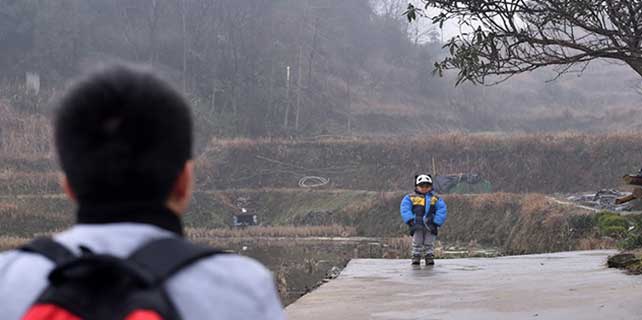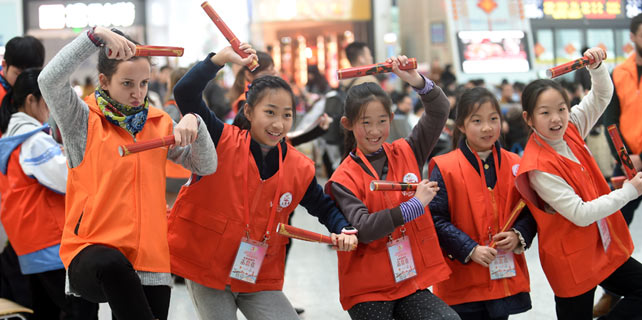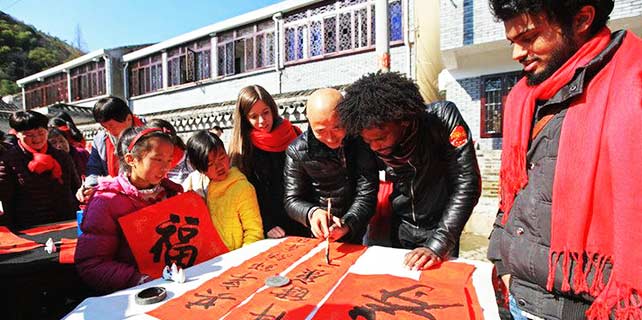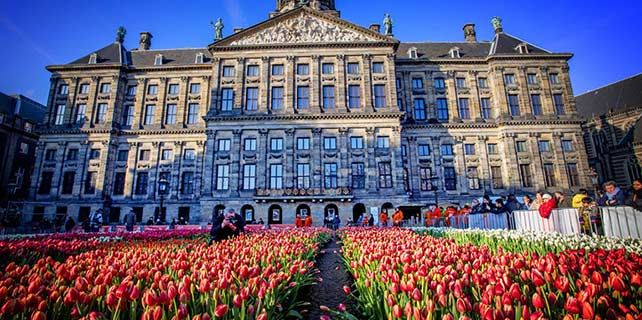Japanese hotel chain's remark on books stirs outrage
Chinese are outraged over a remark by a Japanese hotel chain that has refused to withdraw books from its guest rooms in Japan that deny the Nanjing Massacre in China during World War II.
Foreign Ministry spokeswoman Hua Chunying reiterated on Monday that forgetting history means betraying it, and denying responsibility for crime means recommitting it.
The determination of a small group of people in Japan to ignore the country's historical crimes helps cultivate new ground for the far-right to flourish, she said.
"These people's retroaction has already evoked strong indignation among the Chinese people," she said at a daily news conference in Beijing.
Hua said the Japanese government should not shirk its duty under the excuse of so-called freedom of speech or misguide the Japanese people by saying that "China has placed too much focus on a certain period of history".
"We urge the Japanese to realize the seriousness of the problem, shoulder their responsibility in earnest and properly handle related issues, to avoid new disturbances in the China-Japan relationship," she said.
On Thursday, it was disclosed on Sina Weibo, a Chinese Twitter-like site, that the Japanese chain APA Hotels was distributing the book Theoretical Modern History II: The Real History of Japan. A statement released by APA confirmed that the book, written by its CEO, Toshio Montoya, and available in Japanese and English, claims that "Japan constitutionally guarantees freedom of speech, and no one-sided pressure can force any assertion that is made to be repealed".
China is the top source of Japan's inbound tourism industry. In 2016, 6.37 million visits to Japan were made by Chinese mainland travelers.
After the event, major Chinese travel agencies refused to provide booking service for the Japanese hotel chain.
To protest the book's use, Koro Hotels, an international hotel chain in Zhejiang province, has begun distributing the book The Good Man of Nanking: The Diaries of John Rabe in its guest rooms.
The book compiles the personal journals of a German businessman who lived in Nanjing from 1937 to 1938 as Japanese troops overran the city. It describes an unassuming hero who saved the lives of 200,000 Chinese.
Xu Xiaolei, a China Youth Travel Service spokesman, said that if the APA incident is merely company behavior, it should not affect the bigger picture of tourism exchange between China and Japan.
"Tourism as an industry is very easily affected by exterior factors including terrorist attacks, exchange currency rates and the political environment," Xu said.
Contact the writers at mojingxi@chinadaily.com.cn and suzhou@chinadaily.com.cn
Shi Xiaofeng in Hangzhou contributed to this story.
|
An employee of a hotel in Taizhou, Zhejiang province, puts The Good Man of Nanking: The Diaries of John Rabe in a guest room on Friday.Provided To China Daily |
(China Daily 01/24/2017 page3)







